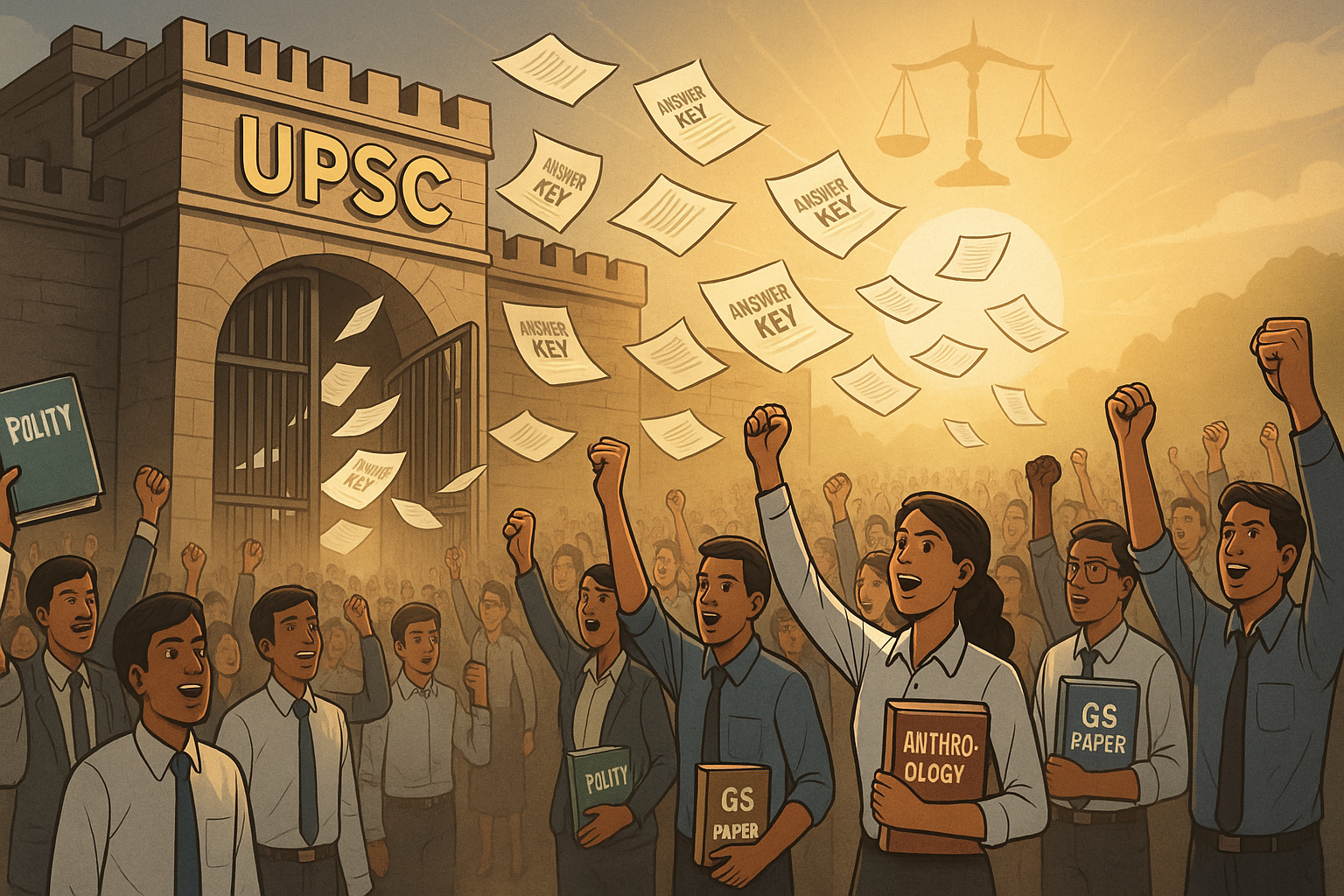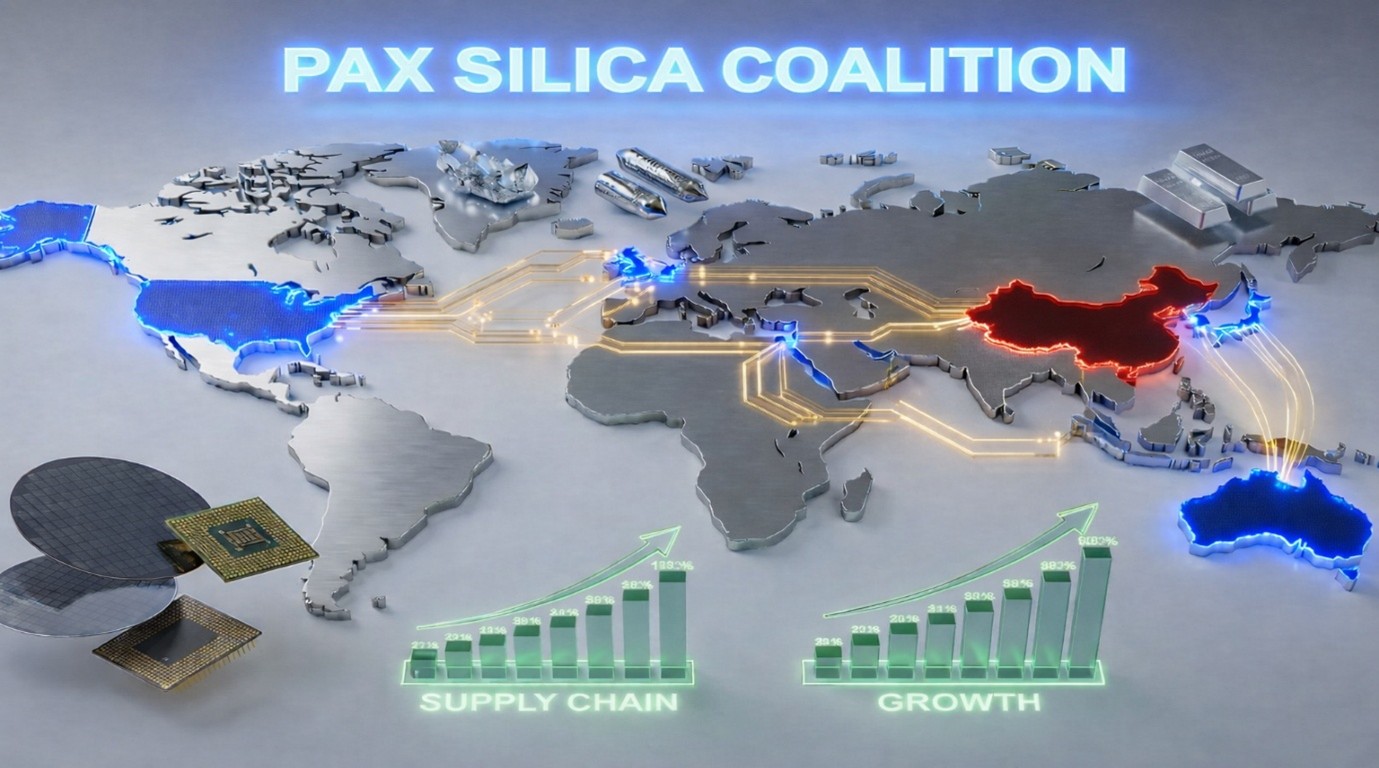UPSC to Release Provisional Prelims Answer Keys
In a landmark reform, the Union Public Service Commission (UPSC) has announced that it will now release provisional answer keys for the Civil Services Preliminary Examination immediately after the exam. This move — hailed by aspirants as a long-awaited step toward transparency — marks a major shift in UPSC’s examination policy and its approach toward accountability.
Under the new system, objections raised by candidates will be referred to a panel of subject experts, who will review and finalize the answers before result declaration.
This single reform is expected to redefine how India’s most prestigious exam — the Civil Services Examination (CSE) — functions in terms of openness, fairness, and candidate trust.
Why This Reform Matters
For decades, UPSC had maintained a closed-door policy — releasing answer keys only after the entire cycle of Prelims, Mains, and Interview was complete. Aspirants eliminated at the prelim stage were left with no way to verify or challenge potential errors.
Repeated petitions and public pressure over the years questioned this opacity. The new 2025 reform now ensures that students are active stakeholders in ensuring fairness in evaluation.
Yet, it raises a fundamental question: Why couldn’t UPSC exercise such precautions earlier?
When the Commission commissions papers, why can’t it ensure that every question comes from an authoritative source — or require the paper setters to attach their references upfront? Instead, different universities or professors are simply asked to “send ten questions each.”
When those contributors provide answers, why not demand that they attach the source citations at that stage? Why burden students later by asking them to prove their objections with three authoritative sources?
UPSC to Release Provisional Answer Key After Prelims
Key Highlights of the Reform
|
Aspect |
Earlier Practice |
New Reform (2025) |
|
Timing of Answer Key Release |
After final results (months later) |
Immediately after the Prelims |
|
Transparency Level |
Opaque, no challenge window |
Open, provisional key released |
|
Candidate Involvement |
None |
Candidates can raise objections |
|
Verification Process |
No direct check |
Expert panel to review and finalize |
|
Basis of Result |
Unreviewed key |
Expert-verified final key |
|
Grievance Redressal |
Practically absent |
Institutionalized mechanism |
This change ensures that the prelims evaluation is not just about cut-off marks but also about fairness, procedural correctness, and candidate participation.
In an affidavit filed before the Supreme Court Bench headed by Justice P. N. Simha, UPSC stated that it had undertaken comprehensive deliberations and made a conscious, well-considered decision to enhance transparency.
The affidavit described the change as a dedicated response to long-standing grievances raised by petitioners. The Court’s involvement was critical — it nudged UPSC toward aligning with principles of fairness and accountability that aspirants had long demanded.
Interestingly, the report about this major policy shift first appeared in Hindustan Times — not in The Hindu or Indian Express — underscoring how fresh and unexpected the reform was even within policy circles.
Court-Driven Transparency
The move stems from judicial intervention and the growing number of petitions from aspirants.
The Supreme Court of India, responding to pleas highlighting UPSC’s lack of transparency, asked the Commission to justify its secrecy.
In an affidavit filed before the Supreme Court Bench headed by Justice P. N. Simha, UPSC stated that it had undertaken comprehensive deliberations and made a conscious, well-considered decision to enhance transparency.
The affidavit described the change as a dedicated response to long-standing grievances raised by petitioners. The Court’s involvement was critical — it nudged UPSC toward aligning with principles of fairness and accountability that aspirants had long demanded.
Interestingly, the report about this major policy shift first appeared in Hindustan Times — not in The Hindu or Indian Express — underscoring how fresh and unexpected the reform was even within policy circles.
A Shift in Attitude
Until recently, UPSC had dismissed the idea of publishing answer keys early, calling it “counterproductive” and claiming it would delay the examination process.
But the Court’s firm stance forced introspection. The Commission’s tone shifted from denial to acceptance.
This introspection led to the conclusion that transparency doesn’t delay fairness — it strengthens it.
For years, aspirants complained that questions were sometimes deleted without explanation, and that there was no clear quality-check mechanism. The new process now directly addresses these concerns by:
- Allowing candidates to raise objections within a fixed timeframe.
- Ensuring those objections are reviewed by a panel of experts.
- Mandating that each objection be supported by reliable, authoritative sources.
This policy shift is thus both a judicially inspired and student-driven reform — a culmination of years of public frustration.
UPSC Provisional Answer Key Reform 2025: Process Overview
The new system is procedural and structured. Here’s how it will work:
Step-by-Step Procedure
- Publication of Provisional Key – UPSC will release the provisional answer keys soon after the Prelims (possibly within 48 hours).
- Access for Candidates – All Prelims-appeared candidates can download and review the provisional key from UPSC’s official website.
- Window for Objections – A specific objection window (likely 5–7 days) will open, during which candidates can submit representations.
- Supporting Sources Required – Each objection must be backed by at least three authoritative sources such as standard textbooks, government publications, or peer-reviewed academic material.
- Panel Review – A subject-wise panel of experts will scrutinize all valid objections and deliberate on them.
- Final Key Publication – After deliberations, UPSC will publish the final answer key, forming the basis for result computation.
- Result Declaration – Results and cut-offs will then be announced based on the finalized, reviewed key.
What Has Changed in UPSC Answer Key Reforms 2025
|
Parameter |
Earlier System |
Reformed System (2025) |
|
Transparency |
Minimal |
High |
|
Aspirant Engagement |
None |
Active role via objections |
|
Error Correction |
Post-facto, after results |
Pre-result correction |
|
Authority Validation |
Internal to UPSC |
Open, supported by sources |
|
Time of Key Release |
After interview cycle |
Immediately after prelims |
|
Result Accuracy |
Based on closed review |
Based on expert-verified key |
This reform directly tackles the historical complaint that UPSC lacked an error-correction mechanism at the most crucial stage — the prelims.
The Objection Process Explained
Candidates can now formally challenge errors in question papers or answer keys. But the process comes with expectations.
While the rule requiring “three authoritative sources” aims to discourage frivolous objections, many argue it’s unnecessarily stringent. Often, one credible source — such as a standard historian, scientific journal, or government report — should suffice.
For instance, if historians like A. L. Basham or texts such as Manusmriti (quoted even by Dr B. R. Ambedkar in the Constituent Assembly) support a claim, that should carry academic authority.
The review will follow a multi-tier structure:
|
Stage |
Responsible Entity |
Purpose |
|
Initial Submission |
Candidate via portal |
Raise objection with sources |
|
Screening |
UPSC verification team |
Check for completeness & authenticity |
|
Expert Review |
Subject-wise expert panel |
Evaluate merit and recommend acceptance/rejection |
|
Finalization |
UPSC Commission |
Approve final key |
|
Publication |
UPSC website |
Release final version for result |
This system institutionalizes a fair and scholarly way to settle disputes — a feature absent in UPSC’s earlier model.
Supreme Court Verdict on UPSC Answer Key
Though the Supreme Court’s final judgment is awaited, the ongoing hearings and UPSC’s affidavit have already created a binding moral precedent.
The Court’s questioning of UPSC’s opacity — and UPSC’s acknowledgment of reform — demonstrate how judicial oversight can foster institutional accountability.
It’s one of those rare moments when the Court’s nudge, public activism, and administrative humility converge to produce systemic change.
Impact of UPSC Answer Key Reform 2025 on Aspirants
1. Empowerment and Fairness
Candidates now have a voice in correcting potential errors that once cost them years of preparation.
2. Accountability and Trust
UPSC’s willingness to allow scrutiny enhances its credibility. Transparency fosters faith in the institution.
3. Reduced Stress and Speculation
Early access to answer keys eliminates the anxiety of waiting months to confirm correctness.
4. Better Study Ethics
Aspirants may now focus on conceptual clarity and authentic sources, knowing that authoritative references carry weight.
5. Positive Ripple Effect
Other recruitment bodies (State PSCs, SSC, etc.) might emulate UPSC’s model, elevating the overall exam ecosystem.
6. Institutional Responsibility
UPSC must ensure quality-checked question papers, since public review will expose flaws quickly.
Challenges in UPSC Answer Key Reform 2025
|
Challenge |
Explanation |
|
Burden of Proof on Aspirants |
Collecting three authoritative sources is demanding. |
|
Ambiguity in “Authoritative” Definition |
Which sources qualify may remain subjective. |
|
Volume of Objections |
Thousands of candidates could overwhelm expert panels. |
|
Potential Delays |
The new review stage may slightly delay result announcements. |
|
Panel Bias |
Experts may disagree; human subjectivity persists. |
|
Digital Infrastructure |
UPSC must maintain a robust portal to handle submissions securely. |
|
Resource Inequality |
Rural aspirants may struggle to access rare academic materials. |
Reform alone is not enough — equitable implementation is crucial.
Beyond Prelims: Issues in the Interview Process
While the new prelims policy is revolutionary, UPSC’s Interview (Personality Test) stage continues to face criticism.
Persistent Disparities
- Some boards reportedly award average marks of 160, while others average 130, with no normalization.
- Candidates scoring barely 50 % in written papers have been given 215+ marks in interviews — raising doubts about consistency.
- Data also suggest regional and category biases, with SC/ST and regional-language candidates generally scoring lower.
Lack of Board Accountability
Who ensures that UPSC members themselves are competent to assess personalities?
Many have administrative or policing backgrounds — valuable experience, yet not necessarily suited for psychological evaluation.
Suggested Reforms
|
Issue |
Proposed Reform |
|
Variance in Board Scores |
Introduce normalization or moderation system |
|
Selection of Board Members |
Transparent, merit-based process with psychometric training |
|
Bias in Marking |
Periodic audits and data transparency |
|
Lack of Review Mechanism |
Establish grievance redressal or appeal structure |
Reforming the interview process is as critical as the prelims answer-key reform — because the interview ultimately shapes the final merit list.
Transparency, Reliability, and Fairness
The Chairman-led interview board holds immense power, as it directly decides final ranking. Therefore, fairness in this stage is indispensable.
Courts represent ultimate justice for society, but for aspirants, UPSC is the ultimate authority governing careers.
A single flawed question or biased evaluation can cost a candidate an entire year — or, metaphorically, “the last year of their potential career,” the year they might have led with experience and maturity.
Hence, the new answer-key reform should be seen as the beginning of a broader movement toward institutional transparency across all stages of the Civil Services Examination






